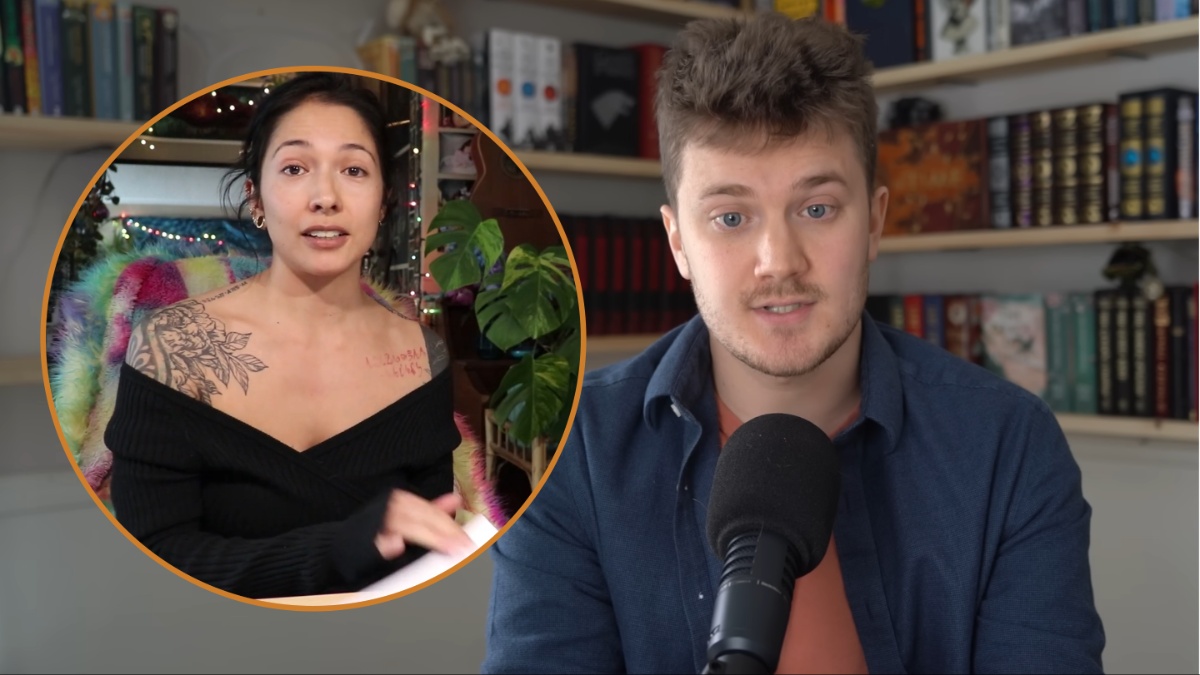The Bible is one of the oldest books in the world, and many would make the argument that it’s the most important book in the world, if you’re of a certain religious denomination. Think of the Bible as sort of a huge library, filled with different books written over 1,500 years, from 40 different authors on three continents. It can be an intimidating prospect to read the Bible, and you might not know where to begin. Don’t worry, we’re here to help.
What is the history of the Bible?
The Bible begins with Old Testament, starting with God’s creation of the world and mankind, up to the Jews getting kicked out of Babylon. It’s actually quite similar to the Hebrew Bible. It’s believed that the writing of the Old Testament started in the 8th century B.C., with educated royal scribes taking down legends and history.
The New Testament was written in Greek, and is made up of 27 books. It’s a history of the earliest days of Christianity, which was the apostle Paul writing about and spreading the teachings of Jesus. The sections of the Bible mainly about Jesus are called the Gospels, and were written about 40 years after Paul wrote his Christian materials.
Churches started distributing Paul’s letters around 50 A.D. and scribes copied those letters, which were eventually put into books. Historians believe that some early Christians wrote books attributed to Paul, even though they were not written by him. As the letters and Paul’s words were distributed, churches started an oral tradition of Jesus’ acts, including his resurrections and some teachings. While Paul talks about Jesus firsthand, they never met, and Paul only “knew” Jesus through visions.
The Gospels, which constitute the four narrative accounts of Jesus’ life, were mostly formed through those Church oral traditions. For example, the book of Mark was written around 40 years after Jesus died. The Gospels were published anonymously, and historians theorize the reason they were given the names of Jesus’ disciples was so that they would be more believable.
After Mark came the books of Matthew and Luke. While both used Mark as a reference, it’s believed Matthew came from another source. John was written last, around 100 A.D., and his book is the harshest toward Jewish leaders at the time. The four books contain many contradictions, and each has its own agenda. Matthew and Luke differ on Jesus’ birth, and all of them handle the resurrection differently.
Finally, we have the Book of Revelation, which was written around 95 A.D. While many historians and scholars think the book is less prophecy and more a response to the end of Jerusalem, Evangelical Christians interpret that book as a reflection of modern society and its eventual end. This idea fuels a lot of modern entertainment as well.
When was there an agreement on Biblical Canon?
Churches couldn’t quite agree on what texts were going to be canon until around the 5th century (January 1, 401 AD – December 31, 500 AD). By the 16th century, during the Protestant Reformation, the book of Judith and Maccabees was taken out of the Old Testament because they were written in Greek and not Hebrew.
Are there additional books not included in the Bible?
Yes, there additional texts that are not included in the Bible. In 1896, the Gospel of Mary was discovered. In 1945, someone found the Gnostic Gospels. These include the Gospel of Thomas, which contains further teachings by Jesus, and the Gospel of Philip, which claims Jesus was married to Mary Magdalene. Those texts date back to around 120 AD.
There’s even a Book of Judas, which was believed to have been written in 280 A.D. While they’re not canon, they are believed to contain alternate versions of the same stories.
What’s the most popular version of the Bible?
The King James Bible is probably the most well-known Bible edition. It was printed in 1611, and was first commissioned in 1604 by King James I of England. King James decided that the book should be written in the style of language at the time of writing, and it was meant to mend the contentious relationships between the different factions of Christianity at the time. Now that we know the history of the Bible, let’s tackle the best way to read it.
What’s the best place to start reading the Bible?
While of course it’s up to personal preference, the easiest place to start reading the Bible is probably the book of Genesis, starting with the creation of mankind. It introduces a lot of characters and ideas that are reused throughout the whole text. It’s also a pretty good story. The first humans, Adam and Eve, disobey God and fall from his grace. It also covers Noah and the flood that destroyed the world, and Abraham, the father of the Israelites.
From there, it’s probably best to move on to Mark. It’s the easiest and most straightforward of the four Gospels, and it introduces Jesus and his teachings. After making your way through the rest of the Gospels, move on to the Epistles, mostly those from Paul. These were letters written to different early Christian communities, and they dig deeper into Jesus’ teachings.
Once that’s done, knock back over to the Old Testament. Some of it is a slog, but Job, Proverbs and Psalms deal with themes of suffering, reward, and faith. The books of Exodus and Deuteronomy continue the tale of the Israelites.
Remember, while you can read the Bible cover to cover, it’s a book that begs for meditation and pondering. Reading in this order will allow for the introduction of biblical themes in Genesis and then move on to the Gospels, which illustrate and explore Christianity’s central character: Jesus Christ. From there the Epistles expand on those teachings. Finally, the Old Testament will provide insight on those thematic elements from the New Testament.
Take your time making your way through, and remember that some parts of the Bible are fascinating and action packed, while others are full of rules and measurements. Maybe even consider a study group. Regardless of belief, the Bible is an important historical document and worth being familiar with. Find the order that works for you and will keep you engaged. And don’t forget to enjoy yourself! It shouldn’t feel like a chore.











Published: May 20, 2024 05:08 pm